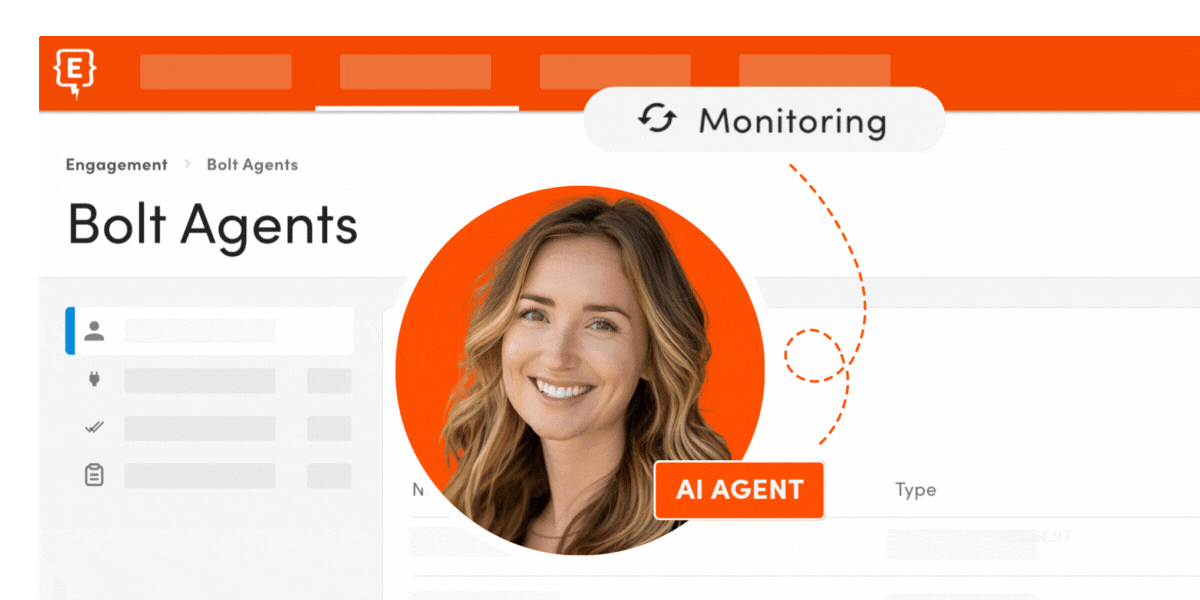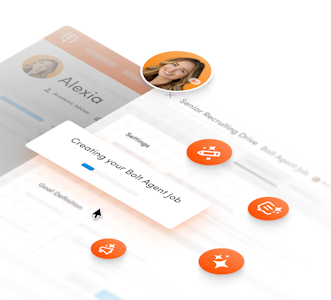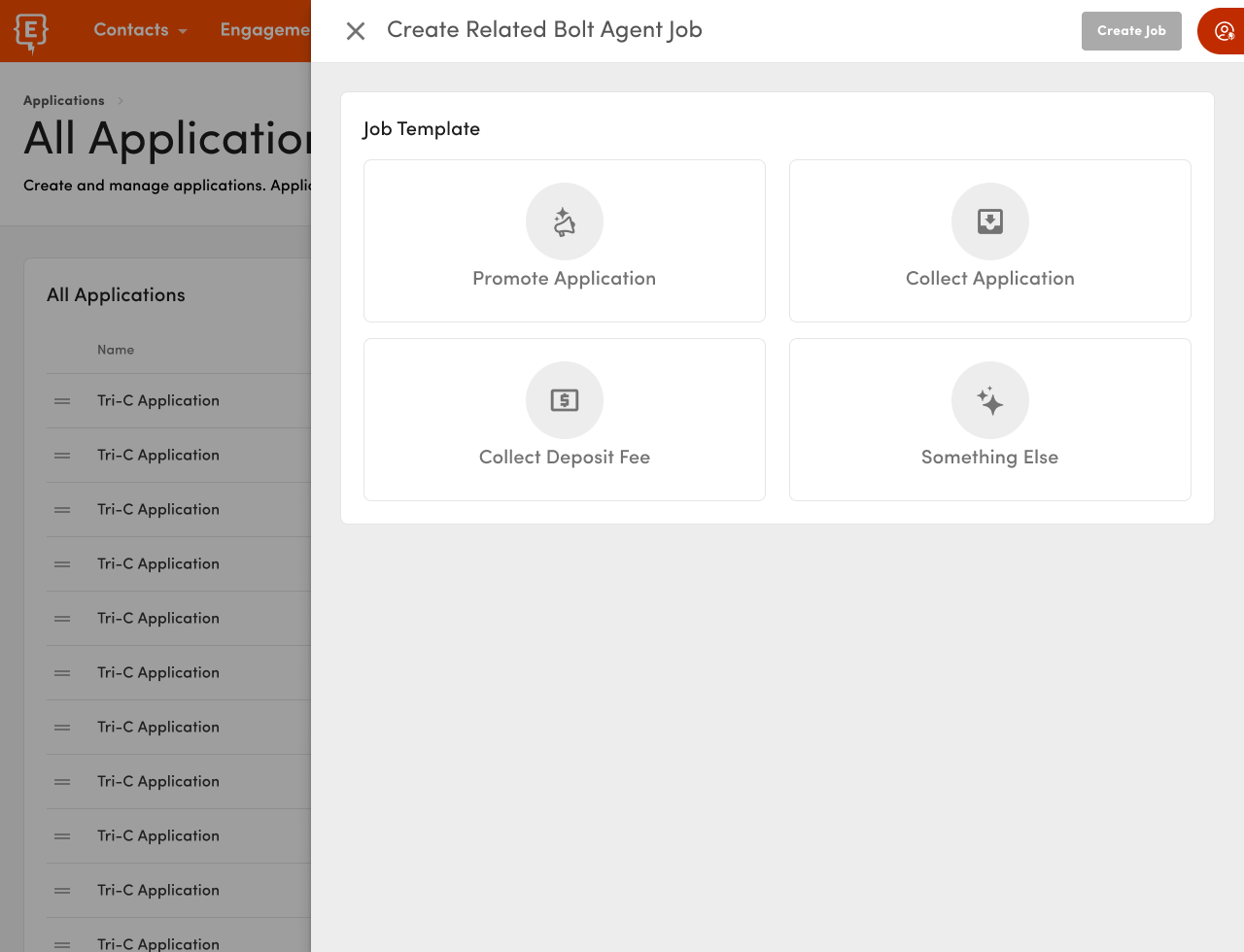What is a Higher Education CRM?
by Rita Winthrop · Updated Sep 13, 2024
Why a CRM Platform is Crucial for Student Lifecycle Management
Digital advances in modern technology could turn the higher education sector on its head. In particular, student lifecycle management is one area that could change and benefit from higher education Customer Relationship Management (CRM) implementation.
Effective college teams know how to use and leverage CRM systems for maximum impact both internally and across campuses. That’s because CRM platforms allow colleges to attract, enroll, engage, and retain more undergraduate students each year. Plus, higher education CRMs are unique in that they focus primarily on giving students exceptional experiences—not on making sales.
As an enrollment officer, recruitment management, or IT leader, there are features and options you need to know before deciding which CRM platform to invest in. On this page, we’ll outline a few of the most critical features to look for. Then, we’ll showcase how a higher-ed CRM system can help institutions manage both internal and external processes with ease.
What is a Higher Ed CRM?
A higher-ed CRM is a customer relationship management system designed specifically for institutions like colleges and universities. These digital, often enterprise-level applications, help schools manage student recruitment, engagement, communications, and retention.
Higher education institutions can then use those systems to easily manage relationships with prospective students, current students, and alumni.
Many higher ed CRMs give college administrators a clear understanding of their prospective and current students, as well as their alumni. Intuitive platforms track data related to campus interests, communication history, academic progress, application status, and more, and centralize that information in one cohesive platform.
What Can Campus Teams Accomplish with a CRM?
A CRM can help identify prospective students who have indicated a specific interest in certain academic programs. Admissions teams can then target those students with customized messaging to increase conversion rates. If you’re thinking proactively, you’ll also want to use CRM platforms to gain relevant feedback and improve the quality of academic or on-campus services.
>>Don’t miss this! Get our comparative list of 10+ CRM platforms for higher ed.<<
Forbes Technology Council acknowledges the importance of finding tech solutions, like CRMs, that get to the heart of student concerns and experiences, rather than simply solving problems from a business perspective. One Forbes Council member writes:
“Most higher education institutions are still using technologies from over 20 years ago—before Amazon, Netflix or the iPhone were invented. Most of the prominent solutions of these institutions were unable to address the “why” at the heart of the solution’s purpose when they were implemented decades ago.”
The possibilities of CRM application and implementation are truly endless, especially when considering the thousands of unique campus communities all around the United States.
Top 5 Features for Higher Ed CRM Implementation
Throughout the process of finding and building a CRM system that works well, adhering to rules, regulations, and guidelines is extremely valuable. Higher ed CRM features should work in a school’s favor, and benefits should be visible for many semesters—or even longer.
In this section, we’ve identified five of the most important features to look for when comparing platforms.
1. Marketing Automation
Within a competitive recruitment environment, starting and maintaining relationships with prospective students can be a major differentiator.
Marketing automation is an important part of the inquiry puzzle, because it allows institutions to nurture long-term relationships with future attendees. CRM marketing tools accomplish this by fine tuning communication through channels like email, social media, or phone (call and SMS). A tailored approach enhances engagement and satisfaction levels, especially when touchpoints move quickly—and don’t leave students waiting on answers or responses.
2. Analytics and Data Management
A qualified enterprise CRM platform should analyze student data to improve student outcomes and experiences. With the ability to draw insights and make data-driven decisions, institutions can level up their existing recruiting tactics.
Fresh data also reveals institutional bindspots, which could contribute to the need for improving course offerings or resource allocation. Strong data management also allows institutions to target student engagement campaigns and deliver targeted help to students when they need it.
3. Student Support Portals
Many CRM platforms designed for higher education contexts also include an optional student support portal. A portal gives students 24/7 self-service access when they want to locate things like academic resources, personal and financial data, campus events, and other important services.
When institutions adopt a self-service platform, this move reduces the number of inquiries that student service professionals have to handle during set business hours. CRM portals also facilitate communication between faculty, students, and other institutions when there’s a need to exchange paperwork or approvals for students.
4. Mobile Communication Tools
Personal interactions are some of the most important components of the student lifecycle. There’s no replacing the value of transparent messaging delivered at just the right time. But as more students turn to mobile application processes, the important aspect to this feature is ensuring that it delivers an excellent mobile experience.
Email, phone, and online chatbots expand opportunities to engage students across campus. Flexible touch points also prioritize communication preferences of the current generation and delivering information on-the-go. A cloud-based CRM stores and updates these interactions so that student data is safely accessible across departments and with other staff members.
5. Integration with Student Management Information Systems (MIS)
Lastly, schools can integrate their CRM solution with a chosen student management information system (CMIS) to maintain consistent and accurate student information. This integration is essential for tasks related to data organization, course registration, financial aid, account cleanup, graduation, and alumni tracking.
A consolidated process between the CRM and CMIS improves consistency when handling and protecting student data. It also eliminates clerical errors associated with manual data entry and can help save on needless tech or operational costs.
Element 451: How our Higher Ed CRM Answers the Call
Do you need to invest in a higher education CRM to achieve your college goals? Or, are you in a position to re-evaluate your current tools? Whether you’re looking to optimize current platforms, trim costs, or get to know your students more individually—you’re in the right place.
Element451 is an AI-powered, all-in-one CRM platform for higher education institutions of all shapes and sizes. Here’s what you can bank on when you turn to our platform for deeper, more meaningful student connections.
Marketing and Communications
As a marketing and communications platform, Element451 helps colleges and universities eliminate manual hassles and communication frustrations. This means that you can automate standard marketing cycles to save time and to continually nurture new leads. You’ll get valuable analytics to see how those marketing campaigns are performing so that you can evaluate ROI and make smarter adjustments.
Information Technology
Higher ed IT sometimes gets a reputation for its lack of user-friendliness and overall difficulty. Not anymore. Element451 centralizes student data in one simple location so that your teams and departments can stay organized, ready to respond and take action.
Artificial Intelligence
Smarter campaign messaging, personalized email communication, and behavior-driven methodologies are at your fingertips. Use Element451’s Bolt Copilot and BoltBot to capitalize on Artificial Intelligence in a way that’s captivating to your students.You’ll get a conversational, feel-good approach that’s both easy for your staff and more relational for students.

Get A Demo of Element451
Students explore and pick where they’ll earn a degree in completely new ways. Welcome to the new world of enrollment, powered by Element451. We've been waiting for you.
Show me More
Advantages of Using a Higher Ed CRM Platform
Colleges and universities always need to find effective ways to attract and retain all types of students, but it’s challenging for schools to stand out from the crowd and build a strong reputation. It’s even more difficult to combat enrollment dips and struggles when admissions teams don’t have access to the right tools.
There are a few important advantages of using (and investing in) a complete CRM.
Holistic View of the Student Journey
One benefit of using a higher ed CRM is that it provides a complete, 360-degree view of each student. Data within the CRM allows institutions to see the student's entire journey, from inquiry to enrollment—and the many conversations that happen along the way.
Colleges can use this information to personalize their interactions with each student. One example would be to send messages or personalized support when a student expresses interest. With such a complete picture, institutions can better identify students who are at risk.
Streamlined Communication
Another perk to using a higher ed CRM is the ability to modernize communication. Since a CRM serves as a centralized, cloud-based database, colleges can more easily communicate with their students through emails, SMS, and social media.
Automation tools are the perfect way to set and send out reminders for important deadlines related to application submission, enrollment, or class selection. A student engagement platform also allows admissions team members to quickly respond to questions and to take advantage of AI-powered chatbots.
Improved Student Engagement
With a CRM, colleges identify the needs and interests of each student to provide them with tailored recommendations. Engaging students might look like:
- Helping them select the right courses
- Connecting them with extracurricular activities that they’ll enjoy
- Partnershing them with internships to serve future career interests
By offering a personalized experience, college leaders may be able to increase the opportunities for students to stay enrolled and engaged. With personalized resources, students can physically see how to respond to challenges and stay focused on success.
Analytics and Reporting
If your college or university is in need of data for making evidence-based decisions, a complete student engagement platform or CRM is the way to go.
Use student data within the CRM to accomplish essential tasks:
- Track and monitor individual student progress
- Identify trends and patterns with enrollment
- Adjust student-centric strategies accordingly
Many CRM solutions also provide reporting and analytics capabilities. Reviewing available data allows colleges to spot changes over time and create action plans for more systemic problems. Admissions teams can track enrollment rates, student retention rates, and other critical metrics related to student lifecycle management.
Budget-Friendly Savings
Lastly, adding a higher ed CRM to your tech suite is a cost-effective solution if you’ve been searching for better processes around student lifecycle management.
Rather than relying on manual data entry, paper forms, and spreadsheets, CRMs automate routine tasks. A centralized database for all student information also ensures security, accessibility, and ease of use. An operational workflow that includes the right CRM typically reduces the time spent on routine administrative tasks, allowing staff members to focus on higher-value activities that prioritize students.
Student Lifecycle Management with a CRM
As an admissions leader, college campus president, or enrollment officer, ensuring a successful student lifecycle is a top priority. However, without a comprehensive understanding of the four core components of student lifecycle management, it can be a challenging task.
In this section, we’ll take a closer look at each stage of the student journey to help you refocus and fine tune your student lifecycle management using a CRM.
Application to Alumni
Streamlining the application process through online applications, virtual campus tours, and digital recruiting experiences removes wasted time during the standard enrollment cycle. By using your CRM to get better demographic data, campus leaders can better craft a diverse, inclusive community.
Student Engagement and Retention
Naturally, the next step once a student enrolls is turning your attention to strong student engagement and retention tactics. A CRM platform can assist with these efforts by allowing student-facing teams to:
- Implement popular student engagement practices
- Personalize course and social recommendations
- Encourage students to get involved in clubs, athletics, and extracurriculars
- Promote an open-door policy for academic and student support personnel
- Foster a sense of belonging and investment in the institution as a whole (a strong brand and sense of community can help here, too)
More engagement contributes to higher rates of increased student success and satisfaction—both important characteristics in a world where students sometimes doubt the worth or meaning of their degree choices.
Alumni Relationships
CRM engagement is also essential for maintaining strong alumni relationships after degree attainment. That’s because alumni provide helpful expertise within the campus community, and they also act as brand ambassadors.
So, even after the typical student lifecycle is over (while students are working toward degree completion), CRM capabilities play a role in maintaining contact and expanding the school’s long-term community.
Higher Ed Education Industry Trends
What does the higher education industry at large tell us about the use of CRM platforms? Based on usage and implementation trends, we know that schools—from community colleges to large public state schools—rely on CRMs for organizational change management. The appeal for student experiences is also high. More schools are looking to influence areas like:
- Personalization – responding to students’ desire for accurate and easy experiences
- Mobility – leveraging convenient browsing and college mobile apps for “plugged in” experiences wherever students go
- Predictive analytics – identifying and addressing student attrition before it's too late (and using data to achieve those outcomes)
Positive growth happens when colleges can respond to modern student expectations and meet those needs through targeted, personal strategies.
Case Studies: CRM Success in the Spotlight
At Element451, we champion the use of strong data, smart tools, and intuitive features to keep the higher ed industry as strong as possible. It’s clear that access to the right tools and resources creates a ripple effect. While internal team members and staff see the initial benefits, students can easily distinguish between schools that have their processes in a great spot versus those that don’t.
These case studies illustrate how a student engagement platform changes institutional culture (and numerical results) for the better.
- Florida State College at Jacksonville automated recruitment during the COVID-19 pandemic as a way to provide 1:1 experiences to students and staff. “We’ve not just learned how to offer everything in a virtual space, but we learned how to do it well. We will never go back to the way things were,” said Jacquelyn Thompson, AVP Enrollment Management.
- Revolutionizing Student Communications on Small Teams By using Ignite, a new offering from Element451, colleges gain access to an all-in-one software package that provides the hyper-personalized and automated communication tools. This means that smaller schools (with more limited staff resources) can get a leg up on the competition. Unlimited texting, email segmentation, and branded messaging are just a few of the benefits to choosing a CRM that prioritizes the complete user experience.
Higher Ed CRM Resources from Element451
Check out the resources below to expand your knowledge on current best practices, CRM trends, and expert higher education advice from our team at Element451.
Launch Your CRM Implementation Now
The right higher-ed CRM solution streamlines the student lifecycle process from first interaction, to enrollment, and eventually to graduation.
By adopting an enterprise solution, colleges and universities are better able to reduce cumbersome technology costs, increase student retention rates, and support student success with more personalized data.
Let’s provide student-focused services that help real learners find actual solutions by leveraging fresh data insights in real time.
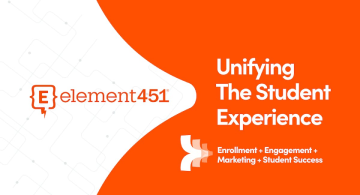
About Element451
Boost enrollment, improve engagement, and support students with an AI-driven CRM and agent platform built for higher ed. Element451 makes personalization scalable and success repeatable.
Categories
New Blog Posts
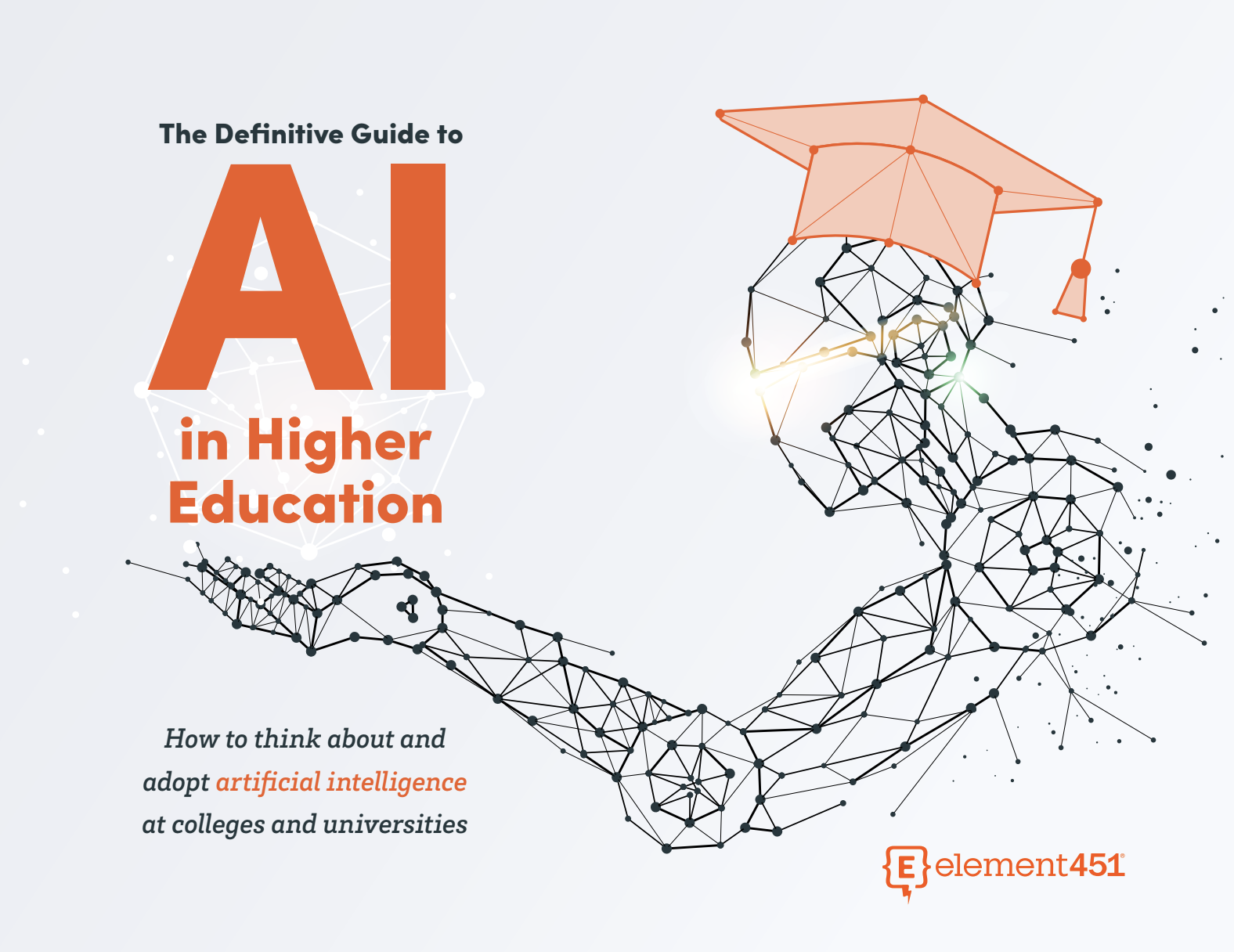
The Definitive Guide
AI in Higher Education
Bridge the gap between the latest tech advancements and your institution's success.
Useful Links

Talk With Us
Element451 is an AI-driven CRM and AI agent platform for higher education. Our friendly experts are here to help you explore how Element451 can improve outcomes for your school and students.
Get a Demo


